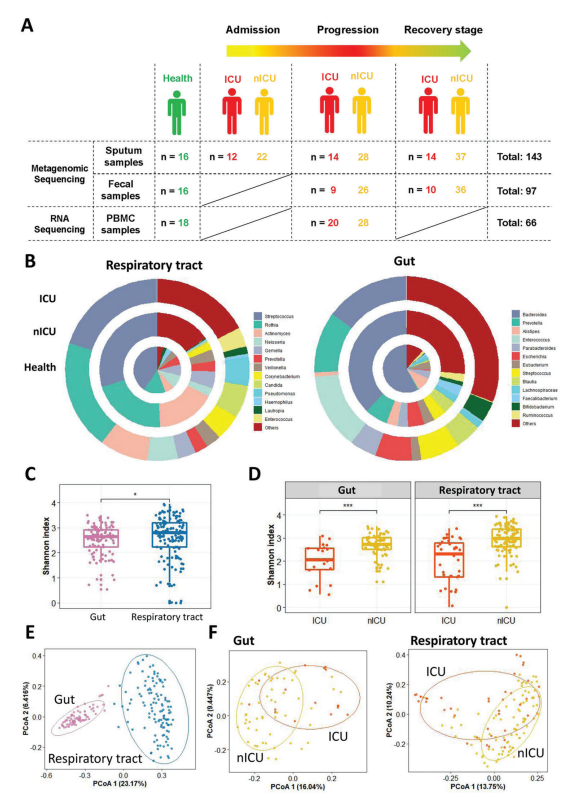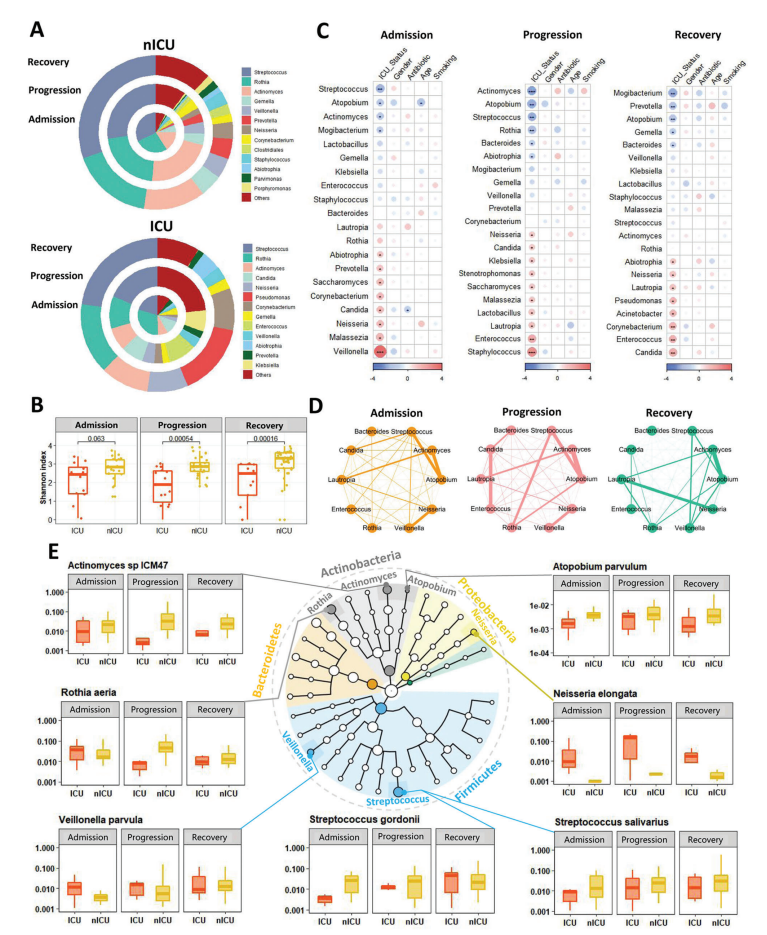The rapid outbreak of coronavirus disease 2019 (COVID-19) threatens global health, and some of infected patients are in critical condition. Microorganisms residing in the gut and respiratory tract can alter susceptibility to and the outcomes of infectious diseases. However, the role of respiratory tract microbes and the relationship between respiratory tract and gut microbiomes in COVID-19 remain uncertain.
On July 6, 2022, Prof. SHEN Yifei from the First Affiliated Hospital, Zhejiang University School of medicine published an article entitled Dynamic Alterations in the Respiratory Tract Microbiota of Patients with COVID-19 and its Association with Microbiota in the Gut in the journal Advanced Science. This study reports that dynamic changes occur in the respiratory tract and gut microbial communities of patients with different COVID-19 disease severities.
Firstly, the study reveals the respiratory tract microbial composition of patients with COVID-19—particularly changes in the abundances of three genera, Streptococcus, Atopobium, and Actinomyces—could be used as a noninvasive biomarker for dysbiosis of the pulmonary microbiome or the invasion of potential pathogens in the lungs.

Figure 1. Altered respiratory tract and gut microbial compositions in patients with COVID-19
Secondly, the study provides substantial evidence that major potential pathogens (Enterococcus and Candida genera) are associated with lung co-infections in COVID-19, and thus guide antibiotic treatment of secondary bacterial infections in COVID-19.

Figure 2. Dynamic alterations in the respiratory tract microbiota and its association with disease severity
Finally, the transcriptome sequencing data provided here conclusively show that defensin-related pathways in PBMCs increase in patients with COVID-19, and these changes are associated with changes in the microbial composition of the respiratory tract.

Overall, this study provides new and important data that will be valuable for halting the continuing and insidious COVID-19 health crisis.
More information: SHEN Yifei , YU Fei, ZHANG Dan, ZOU Qianda are the co-first authors of this article. Prof. CHEN Yu, ZHENG Shufa are the co-corresponding authors of this article.
Source: The First Affiliated Hospital, Zhejiang University School of Medicine
Photo credit: the research team led by Prof. CHEN Yu


